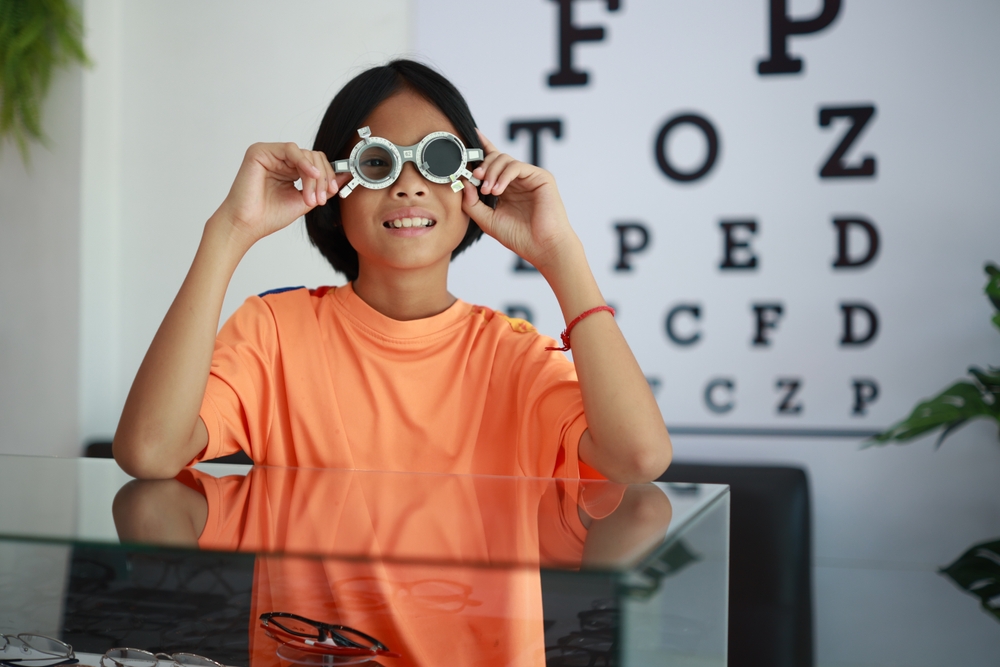
As a parent, ensuring your child is set up for success in school and daily life is a top priority. While many parents focus on academics and physical health, vision health is often overlooked. However, early vision screenings play a crucial role in detecting potential issues that, if left unaddressed, could impact your child’s development and learning abilities. Vision conditions like strabismus, amblyopia, convergence insufficiency, and other visual challenges can affect everything from reading to social interaction.
Detecting Strabismus Early
Strabismus, commonly known as “crossed eyes,” is a condition where the eyes do not align properly. This misalignment can cause double vision or poor depth perception, making everyday tasks challenging for young children. Often, children may not realize that they are experiencing vision problems, and they may develop compensatory behaviors that mask the issue. Left untreated, strabismus can lead to other vision issues, such as amblyopia, and can impact reading and learning skills. Early vision screenings can help detect strabismus before it interferes with your child’s learning and quality of life.
Understanding Amblyopia and Its Impact
Amblyopia, or “lazy eye,” occurs when one eye is weaker than the other, leading the brain to rely more on the stronger eye. This imbalance can affect the child’s depth perception and ability to see clearly out of the affected eye. If amblyopia isn’t detected and treated early, it can permanently reduce vision in the affected eye. Children with untreated amblyopia may struggle with reading, writing, and tasks that require fine motor skills. Regular eye examinations can identify amblyopia in its early stages, making treatment through vision therapy more effective.
How Vision Problems Affect Reading and Learning Abilities
Vision is closely linked to learning. Children with undiagnosed vision problems may have difficulty with reading comprehension, tracking words on a page, and focusing on tasks for extended periods. When a child struggles to keep up with reading, they may fall behind academically and experience frustration and lowered self-esteem. Vision problems can sometimes be mistaken for behavioral issues, leading to misdiagnosis or an incomplete understanding of the child’s challenges. Early eye exams help catch these vision-related learning difficulties, allowing for effective interventions that can help your child excel academically.
The Role of Vision Therapy
For children with vision issues, vision therapy can be transformative. Vision therapy is a non-invasive treatment that uses a series of exercises to strengthen the eye-brain aconnection and improve visual skills. For conditions like strabismus and amblyopia, vision therapy can improve eye alignment, depth perception, and visual processing. In cases where vision problems are affecting reading and learning abilities, therapy can train the eyes to work together more effectively, making it easier for children to read, focus, and succeed in school.
Vision therapy sessions are customized to address each child’s unique needs and challenges, allowing for personalized, targeted improvement. Children typically see benefits such as better eye coordination, sharper visual perception, and enhanced learning skills, which can contribute to greater confidence and academic performance.
Set Your Child for Success at Vision Rehabilitation Associates
An early start to addressing vision problems can prevent long-term developmental and learning issues. Examining children as young as possible—ideally around the ages of 3-5—can reveal any vision issues before they impact social, academic, and cognitive development. By intervening early, you give your child the tools they need to engage fully with the world around them, explore new interests, and feel confident in their abilities.
If you’ve noticed any signs of vision issues, schedule a pediatric eye exam with Vision Rehabilitation Associates. Visit our office in Northbrook, Illinois, or call (847) 716-2340 to book an appointment today.










